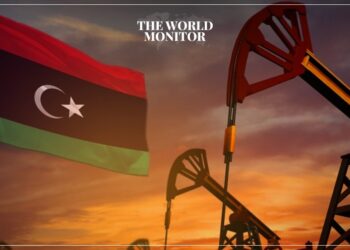Thousands of anti-racism protesters marched in cities and towns across the United Kingdom after a week of anti-immigrant riots and chaos.
The gatherings in areas expected to see anti-immigration protests, including North London, Bristol, and Newcastle, were largely peaceful. The majority of demonstrators chanted “Refugees are welcome here.”
The police were prepared for more violence, deploying thousands of security personnel in response to over 100 protest calls.
Last week’s riots were sparked by misinformation online claiming that the suspect in the stabbing of three young girls in Southport on July 29 was a Muslim asylum seeker.
Mosques and hotels housing asylum seekers were among the places targeted during last week’s protests, with some shops being torched and looted.
On Wednesday, shop owners on main streets across England closed early in anticipation of further violence.
The police advised immigration lawyers to work from home after law firms and consultancy agencies were shared as potential targets in chat groups.
However, only a few arrests were reported during Wednesday’s demonstrations, which were mostly peaceful in parts of England.
In Liverpool, hundreds gathered outside the Asylum Services Office, whose windows were boarded up as a precaution, to support refugees and migrants.
In London, the Metropolitan Police reported that thousands participated in the protests in Walthamstow and North Finchley, which “passed without major incidents.”
Around 1,500 protesters gathered in Bristol, filling the streets with trade unionists and members of black and Asian communities.
In Brighton, eight protesters gathered outside a building they believed housed an immigration and nationality law office before being surrounded by about 2,000 protesters, forcing them to take shelter in a building protected by police.
In Newcastle, about 1,000 protesters, mostly Muslims, gathered on the pavement in front of the Beacon Center, where an immigration services company was listed as a potential target.
A verified video on social media from Accrington showed pub-goers embracing Muslims in the city’s streets.
In Southampton, between 300 and 400 people gathered in Grosvenor Square, chanting “Racists go home” and “Keep racism off our streets.” About 10 anti-immigration protesters also arrived, with police separating the groups, and only one person was arrested.
In total, more than 400 people have been arrested since the riots began last week.
Charges have been brought against more than 140 individuals, with some already convicted and sentenced.
Three men have been sentenced to prison for their roles in violent riots in Southport and Liverpool.
The peaceful scenes at Wednesday evening’s protests raise questions about whether these demonstrations, arrests, and prison sentences can deter anyone from starting new riots.
Reports indicated disturbances in Croydon, but the Metropolitan Police said they were unrelated to the protests, explaining that about 50 people gathered, threw objects on the road, and hurled bottles at officers, leading to eight arrests.
Police were also attacked in Belfast, where protesters set fires and pelted officers with stones.
Earlier on Wednesday, Deputy Prime Minister Angela Rayner visited the Holiday Inn Express in Rotherham, another hotel housing asylum seekers, which was attacked by rioters on Sunday.
She vowed to punish those involved in the riots “to the fullest extent of the law” and urged people to “stay away from them.”
When asked if protesters had legitimate concerns about immigration, she said, “Taking to the streets, attacking the police, and targeting hotels like this one is not a legitimate act. This is not how we conduct politics in this country, and no one should tolerate it. This is bullying; this is violence.”
Riot police are expected to remain on high alert “in the near future,” including over the weekend and beyond, according to Assistant Chief Constable Mark Williams.
King Charles receives daily updates on the public disturbances across the country, according to Buckingham Palace, but he is not expected to make any immediate interventions or visits to the affected areas.






